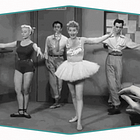Happy Friday, Intentionalists!
Continuing our theme of ‘Five thoughts that are ruining your life’, let’s get to thought number 2: I can’t change.
Yes, you can! The good news is that anyone with a functioning brain can learn a new behaviour. The more you practice a desired behaviour, and refrain from an undesired one, the stronger the neural networks in your brain become. With enough repetition, the new behaviour will become natural.
Today we are exploring ways to make change easier and faster. Grab your journal and a pen and let’s get started!
JOURNAL PROMPTS
1
What is the behaviour or habit you would like to change?
We’re using the example of changing the habit of messy housekeeping to living in a clean and presentable environment. But choose your own behaviour or habit and adapt our examples to your situation.
2
What are the benefits to making this change? (Knowing your ‘why’ will strengthen your motivation)
E.g. A clean house will create a pleasant environment to live in, increase the ability to focus, will make it easier to find things in a hurry etc
3
What strategy have you used to try to change this behaviour or habit and why didn’t it work?
E.g. I tried to set aside Saturdays to clean the whole house, but I got tired and overwhelmed and ran out of time.
What might be a better strategy?
E.g. Rather than saving cleaning for the weekend, I could clean one room or area of my home each day of the week in a rotating cycle.
4
Break the change into incremental steps
E.g. Start my new cleaning routine by having a clear dining table for one week, then the next week add having my bed made first thing in the morning, then keep building on from there.
5
Keep track of your progress and reward successes
✧ This is crucial to changing a behaviour or habit ✧ Backsliding is a natural part of the change process just like a young child falling over – and getting up again - is an integral part of learning to walk. By tracking your progress, you’ll see where you’re getting off track and course correct. You’ll probably also realise you are making more progress than you thought ♡
Write down here what tracking system you will use to measure and document your change
E.g. A journal or a diary, a calendar where you can tick days of progress off, or perhaps you will send a text to a supportive friend at the end of each day to report your progress.
What rewards will you give yourself for achieving the milestones outlined in prompt 4?
(Hint: they can be simple pleasures like a bubble bath or a walk on the beach – anything that gets your brain to associate change with pleasure).
Also, have a positive or funny reset statement that you’ll say to yourself each time you backslide. E.g. ‘Oops a daisy’, or you could channel Blanche from The Golden Girls and say ‘Oh, my well I do declare’. Write your statement down where you’re tracking your progress, and feel free to write it in the comments here too. We’d love to hear it.
As soon as you backslide, take one tiny forward step towards your goal E.g. Put something away in a cupboard or dust a shelf.
6
Create a new identity
What is going to feel like when you achieve the change? What kind of person do you think you will become?
E.g. Organised, competent, confident, socially outgoing, fun, etc
Then use the power of your subconscious to help you change faster
As soon as you wake up in the morning, when your brain is most open to suggestion, imagine yourself being the person you described above. Your body will follow what your mind pictures.*
Supercharge your change with an affirmation
As you go about your day, repeat a phrase to yourself that describes your changed behaviour. And feel good as you say it E.g. I love being tidy and organised. Write down your statement where you’re tracking your progress, and feel free to write it in the comments here too.
7
Do the deeper work
If despite performing the above steps for a few months, you are still struggling to change, there may be a deeper reason behind your behaviour. For instance, chaos or excessive clutter in the home environment can be a sign of a chronically stressed brain or sometimes even unresolved trauma. If you suspect that might be the case with you, write down one action you will take to address this deeper issue E.g. Will you seek therapy? Perhaps you’ll read a book on healing trauma? Or remove unnecessary stress from your life and take up meditation?
*Neuroscientist, Dr Joe Dispenza, describes the concept of the body following the mind this way: When you wake up and want to go to the bathroom, your mind flashes a picture of you getting up and going to the bathroom. Your body then does that. Then it flashes a picture of you making a cup of coffee or tea. Your body does that. You can harness this concept by imagining your new desired behaviour vividly. Your body will soon follow.
Did you miss week one’s thought to blast to smithereens: I am not good enough?
Find it here ↓:
♡ Spread the good vibes ♡
Do you think a friend would enjoy today’s newsletter? We’d love it if you invited them to subscribe 💌
FEEL GOOD AFFIRMATIONS
I embrace change with joy and ease
Every day I take steps to improve and appreciate my life
I love growing into my best self
(Say or write out this affirmation slowly ten times)
KELLY’S SILLY BIT
Words That Amuse Me Volume 2
I have another round of silly words that I hope will amuse you too.
Again, it's not really the meaning of the word, it's how it sounds when said, or it’s that hearing it in a sentence catches you off guard and makes you giggle.
Say them out loud.
Gubbins | This one has a few different meanings:
Odds and ends or rubbish
A gadget or device
A silly or foolish person
Cleek | No it’s not the sounds a camera makes, this means a big hook.
Popple | 80s children, do you remember this toy? It disappeared up inside itself. That sounds wrong, but it did. See this excellent, very 80s advert.
I digress, this cute word means a choppy sea. Use it next time you're on a boat.
Dingus | This has two meanings:
A small item whose common name is unknown or forgotten (e.g. a doodad or a thingamabob)
A dim-witted, silly, or foolish person—often used in a joking or friendly way.
Pronk | Ok, it's very specific this one but ... c'mon. You want to say it. It’s used to talk about a springbok (or similar animal). It means to jump high in the air with straight legs and a curved back. Look at them, proking all over the place!
Bulbous | Two meanings again:
Having a bulb: growing from or bearing bulbs
Resembling a bulb, especially in roundness
I bet nose was the first thing you thought of. A bulbous nose. Why is that? I mean it does immediately bring an image to mind. It makes me think of the villains in old cartoons, but why not a bulbous tummy? Are you pregnant? No thank you, I'm bulbous.
Callisthenics | Systematic rhythmic bodily exercises or exercises to develop strength and flexibility that are done without special equipment
Etymology: From Greek kalos meaning "beautiful" and sthenos meaning "strength"
It's actually quite beautiful, isn't it?
But, whenever I hear this word, I get Mr Burns from The Simpsons leading calisthenics, delivered straight to my brain, and laugh:
If you have a moment, please enjoy:
Do you have any words that make you titter when you hear them? Is one of those words titter? Let us know in the comments!
Did you miss the first round of silly words? Find it here ↓:
Be an intentionalist.
Belinda & Kelly XX
PS - Tap the ♡ button on this post if you enjoyed it, or share it with a friend! It helps people discover it on Substack and please be sure to tell us what you think in the comments!
♡ Read our previous newsletters ♡








